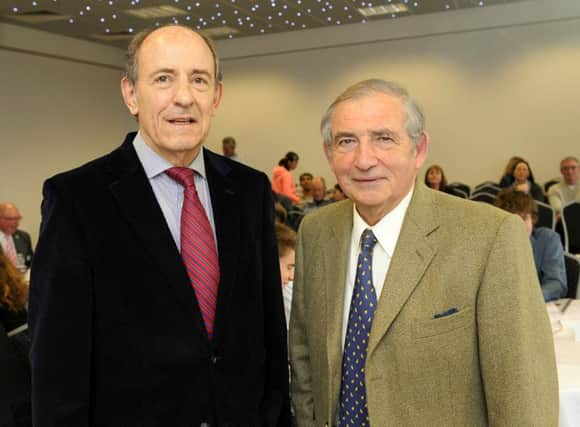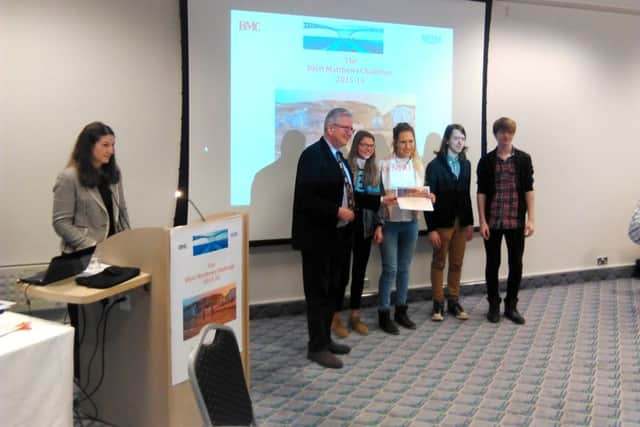Lift off! Pupils boldly go on manned mission to Mars... and back


Their mission, which they had to accept, was to design a manned mission to Mars.
A team of six A-Level physics students from Havant College took part in the regional competition and won £500.
Advertisement
Hide AdAdvertisement
Hide AdThe task was to design a manned mission to Mars, taking account of the overall mission objective, spacecraft design, protecting astronauts from radiation, landing on Mars, getting back and the overall cost.


Mission to Mars was set up by two retired senior engineers, Richard Blott and Charles Matthews, to encourage engineering in schools.
Five local schools were involved and the teams gave their final presentations at The Langstone Hotel before a distinguished panel of judges, including Professor Andrew Coates, the head of the Planetary Science Group at University College London.
All teams gave imaginative and interesting presentations and were all rewarded.
Advertisement
Hide AdAdvertisement
Hide AdThe Havant team stood out for recommending propulsion based on fusion and going for a polar landing site.


Employers are now looking for much more than hard technical skills, they need imaginative engineers who can work in teams.
This project gave the students the opportunity to work together and deliver a professional presentation to experts.
The students were also commended for the way they handled awkward questions at the end.
Advertisement
Hide AdAdvertisement
Hide AdStudent Annie Caddick said: ‘The thing I loved most was the freedom we were given within the subject.
‘My research put into perspective how close we are to being in a place where a mission to Mars could be possible. I definitely have a new-found appreciation for this field of research and the people working in it.
‘It has been a unique opportunity that I have learned a lot from.’
Student George Vernon added: ‘The research was the part of the project that benefited us most.
Advertisement
Hide AdAdvertisement
Hide Ad‘The reading was fascinating. The research did not seem like work at all, though maybe the same can’t be said for the rest of the project, where we were acutely aware in many moments of clarity quite how much work goes into a space mission.
‘I’m really glad to have worked on this project. I did not expect to be designing a space mission when I started my first year at college.’
The students will share the £500 prize money and have something worthwhile to put on their UCAS statements.